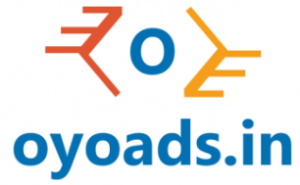Note:
If you guys are getting coupon expired or course is not free after opening the link, then it is due to the fact that course instructors provide only few hundreds or thousands of slots which get exhausted. So, try to enroll in the course as soon as it is posted in the channel. The Coupons may expire any time for instant notification follow telegram channel


In this course, you will learn Lua: Programming From Zero to Hero, Lua is a lightweight, high-level, multi-paradigm programming language designed primarily for embedded use in applications. It is cross-platform, as its interpreter of compiled bytecode is written in ANSI C, making it highly portable. Lua is known for its simple procedural syntax with powerful data description constructs based on associative arrays and extensible semantics. It supports procedural programming, object-oriented programming, functional programming, data-driven programming, and data description. Lua is dynamically typed, runs by interpreting bytecode with a register-based virtual machine, and has automatic memory management with incremental garbage collection, which makes it ideal for configuration, scripting, and rapid prototyping
-
Lua Syntax and Basics: Understanding the fundamental syntax and constructs of Lua, such as variables, data types, and operators.
-
Control Structures: Learning how to use conditional statements and loops to control the flow of the program.
-
Functions: Defining and invoking functions to create reusable code blocks and manage code complexity.
-
Tables: Working with Lua’s primary data structure for organizing and storing data.
-
Modules and Packages: Organizing code into modules and using packages to extend Lua’s capabilities.
-
Error Handling: Implementing error handling and debugging techniques to create robust Lua applications.
-
File I/O: Reading from and writing to files to handle data persistence.
-
Metatables and Metamethods: Using advanced features of Lua to customize the behavior of tables.
-
Coroutines: Understanding and utilizing coroutines for cooperative multitasking.
-
Lua in Embedded Systems: Exploring how Lua is used in embedded systems and game development.
-
Best Practices: Learning the best practices for writing clean, efficient, and maintainable Lua code.
Remember to structure your course content in a way that gradually introduces new concepts, provides plenty of examples, and encourages hands-on practice. Good luck with your course!














![[100% Free]Master MERN Stack by Building Complete Blog Project [2020]](https://oyoads.in/wp-content/uploads/2020/05/2993452_c6fe_2-100x70.jpg)








![[100% Free]Python Bootcamp 2020 Build 15 working Applications and Games (31.5 Hours)](https://oyoads.in/wp-content/uploads/2020/05/Python-Bootcamp-2020-Build-15-working-Applications-and-Games-1-100x70.jpg)

![[100% Free]Java Programming: Complete Beginner to Advanced](https://oyoads.in/wp-content/uploads/2020/05/IMG_20200519_054150_522-100x70.jpg)
